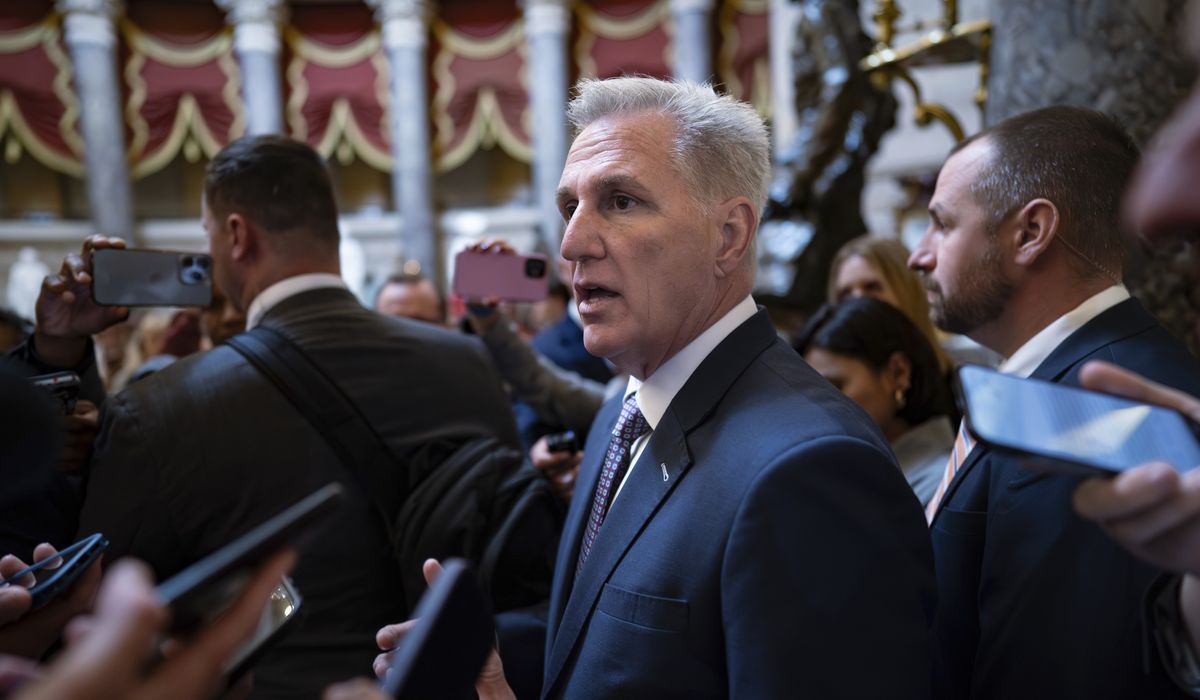Speaker McCarthy asserts that there is still an opportunity to approve the spending bill, despite objections from both political parties regarding the temporary measure.

House Speaker Kevin McCarthy expressed cautious optimism regarding the approval of a short-term spending bill in the House. During a press conference on Monday, he acknowledged that there is still a significant amount of work to be done before the end-of-month deadline.
Mr. McCarthy stated that this is not the 30th.
House Republicans are exploring various options, including a potential new temporary funding proposal, to prevent a government shutdown that could occur after the current fiscal year ends on September 30th.
On Sunday night, the legislation was introduced to Republican lawmakers through a conference call. The aim was to prevent a government shutdown on October 1. The proposal was a collaborative effort between the conservative House Freedom Caucus and the more moderate Main Street Caucus.
The proposed law, referred to as a continuing resolution, aims to maintain government operations until October 31. It was presented as a compromise between the two political groups. The agreement involves reducing domestic spending by 8%, except for the Department of Defense, veterans’ expenses, and aid for disasters.
The annual defense spending bill has already gone through its own turmoil. Last week, Mr. McCarthy had to throw it out after Freedom Caucus members threatened to withhold their votes until they got the spending cuts they wanted — an annual budget that is roughly $115 billion less than the $1.6 trillion agreed upon by Mr. McCarthy and President Biden.
The temporary bill additionally incorporates a significant portion of the House Republicans’ Secure the Border Act. This portion aims to allocate funds for completing the border wall constructed under the Trump administration and enabling the recruitment of additional Border Patrol agents. However, it does not encompass the E-Verify employment verification system, which has generated disagreement within both political parties.
The bill does not include extra funds for Ukraine, which is an attempt to satisfy House Republicans who oppose the proposed $24 billion in aid requested by President Biden. However, the president’s request has the support of Democrats and several Senate Republicans.
It is highly improbable that the bill will be approved by the Senate, however, certain conservative representatives in the House have already expressed their strong disapproval of this bill, indicating that it may not even progress to the other legislative body.
On Sunday, Montana Republican Representative Matt Rosendale stated on X (formerly known as Twitter) that he will not provide support for a CR.
“I cannot reword.”
Rep. Marjorie Taylor Greene, Georgia Republican, posted on X on Sunday, “No policy riders in the CR. So it’s all the policies from last year’s Democrat appropriations, with an 8% cut. Plus the border bill, but no E-Verify. I’m a NO. No money for Ukraine, COVID, or weaponized Gov.”
The Democrats have also expressed their disagreement with the short-term legislation proposals put forth by the GOP.
“In less than two weeks, House Republicans are prioritizing the introduction of funding bills that are considered extreme. These bills aim to reduce funding for the National Institutes of Health, including cancer research, defund the police, and decrease resources for important allies such as Ukraine and Israel. Instead of focusing on bipartisan solutions that could be implemented, Representative Rosa DeLauro, a Democrat from Connecticut and the senior Democrat on the Appropriations Committee, expressed her concern about the Republicans’ priorities.”
If the legislation, or a CR, is approved by Congress, it will maintain the current federal spending level until lawmakers give their approval for longer-term overall appropriations for fiscal 2024.
Less than two weeks remain until the conclusion of the government’s fiscal year, and Mr. McCarthy has cautioned his party that a shutdown may have negative political consequences for Republicans.
“I have experienced shutdowns before, and I have never witnessed anyone emerge victorious from a shutdown. When you shut down, you essentially relinquish all your authority to the administration,” he stated during a Sunday interview on Fox News. “How can you expect to succeed in your efforts to secure the border if the border agents are not receiving their salaries? How can you hope to eliminate wokeism from the Department of Defense if our own troops are not being compensated? You will lack any influence in those matters.”
If House Democrats assist Republican leaders in passing a temporary bill, there is a possibility that Mr. McCarthy may be removed from his position by his own party. On Monday, he informed reporters that Republicans are still generating many valuable ideas.

